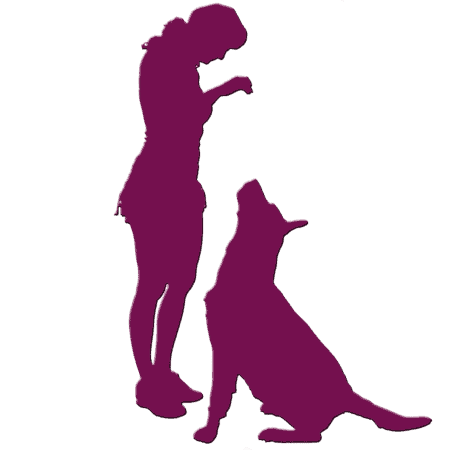Good Dogs!™
Notice the “Question Mark” Above Your Dog’s Head
#6121: Tracie and Carol Borden talk about what causes a dog to fall short of our hopes and expectations, which can lead to a service dog “washing out” of her training program. But Carol believes many reactive issues with dogs can be nipped in the bud if noticed early enough. You can overcome a dog’s doubts and “answer that question” they seem to be asking when they recoil from something. “Bridging” is her solution. Touch your hand to the feared object, touch the dog’s nose. Repeat this exercise multiple times, never restraining or pulling the dog closer to the object. Before long, she’ll go right up and sniff it.
Don’t Judge a Dog by the Cover
#6119: Ethologist Kim Brophey confirms the scientific facts that certain breeds of dogs are genetically inclined toward certain behaviors. She wonders why some people are reluctant to make assumptions about how an individual dog in a breed is going to behave — like a Border Collie who relentlessly chases and herds — when their genomes have been developed by people to do just that?
Don’t Give Puppies as a Christmas Gift!
#6118: Probably the worst time to bring a puppy into a household is during the winter holidays. There is way too much social activity at this time of year to offer a puppy a nice predictable routine and pay the close attention to a puppy that she needs in the early weeks. A puppy needs a chance to figure out where she fits into your family and blossom into her own personality, which a quieter environment makes possible. Over the holidays you can use that “puppy love” energy to volunteer at your local shelter and wait for a more “ordinary” time to incorporate a pup into your life. If you have a child to whom you want to give a puppy, putting an “I.O.U” in their stocking in an elaborate card will give them something wonderful to envision for the new year (or next summer!)
Children Are Little Aliens!
#6117: Carol Borden and Tracie agree that children are entirely different beings than adults from a dog’s point of view — kids look different, smell different, move differently, sound different — and basically can be threatening or distressing for a dog without the child or their parents being aware of this effect. Carol has advice about how to protect dogs and children from each other — and eliminate the risk of the avoidable tragedy of dog bites.
Practice Counting Your Dog’s Toes
#6116: Tracie wonders why many dogs are so scared in the veterinarian’s office, while her own dogs love it there. Carol talks about acclimating your dog to the vet clinic by first getting the dog used to being handled — by you and then family members and friends — by opening his mouth, lifting his ears, and counting his toes out loud, one by one, touching each one as you go. Then take your puppy or newly adopted dog to the vet’s office without an appointment — give lots of treats, have an upbeat positive attitude yourself. Carol recommends advocating for your dog with the staff about the way they handle him, especially if he has a “nervy” personality and is cautious about new experiences, is generally anxious, or hates being restrained. And NEVER let them take your dog “to the back,” away from you to administer anything.
Is Your Dog a Scaredy Cat?
#6115: Carol Borden discusses how to handle a dog who is fearful and mitigate his discomfort with whatever frightens him, like noises, new places or people, sensations, other animals, cars, stairs, etc. She recommends breaking down into small pieces whatever causes your dog to be fearful — taking baby steps and patiently introducing one piece at a time of the thing that makes them scared.






